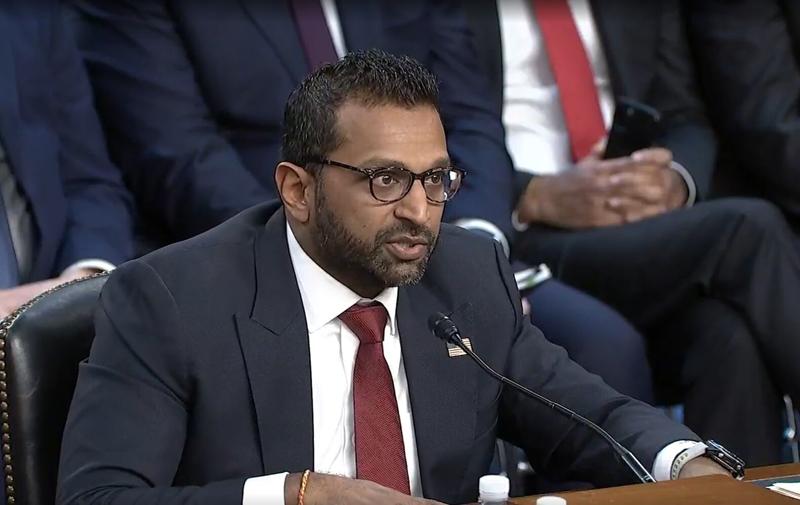Following through on a commitment made during his first term, President Donald Trump’s administration has surged resources to investigate thousands of violent crimes committed against American Indian and Alaska Native (AIAN) people.
The administration did so ahead of a new report from the National Congress of American Indians, which highlights an alarming number of missing indigenous people nationwide. “The data suggests systemic disparities in the reporting of missing persons cases involving these communities, even within the same state,” the report states. “Law enforcement agencies report a lack of resources, training, and protocols tailored to addressing cases involving minority and marginalized groups, which often leads to delayed responses and unresolved cases.”
At the beginning of fiscal 2025, the FBI’s Indian Country program had roughly 4,300 open AIAN investigations, including more than 900 death investigations, 1,000 child abuse investigations, and more than 500 domestic violence and adult sexual abuse investigations, the DOJ says.
“American Indians and Alaska Natives are two and a half times more likely to experience violent crimes and at least two times more likely to experience rape or sexual assault crimes in comparison to all other ethnicities, according to Department of Justice Bureau of Justice Statistics 2019 data.
Trump’s “Operation Not Forgotten” has surged 60 FBI personnel nationwide to help solve thousands of open AIAN cases. They are rotating in 90-day temporary duty assignments over a six-month period, “the longest and most intense national deployment of FBI resources to address Indian Country crime to date,” the DOJ said.
They are supporting investigations in FBI field offices in Albuquerque; Denver; Detroit; Jackson, Miss.; Minneapolis; Oklahoma City; Phoenix; Portland, Oreg.; Seattle; and Salt Lake City.
They are also working with the Department of Interior’s Bureau of Indian Affair’s Missing and Murdered Unit and Tribal law enforcement agencies across jurisdictions using the latest forensic evidence processing tools to solve cases, the DOJ said. U.S. Attorney’s Offices are prosecuting case referrals.
“Crime rates in American Indian and Alaska Native communities are unacceptably high,” Attorney General Pam Bondi said. “By surging FBI resources and collaborating closely with U.S. Attorneys and Tribal law enforcement to prosecute cases, the Department of Justice will help deliver the accountability that these communities deserve.”
“The FBI will manhunt violent criminals on all lands – and Operation Not Forgotten ensures a surge in resources to locate violent offenders on tribal lands and find those who have gone missing,” FBI Director Kash Patel said.
The DOJ says it’s prioritizing addressing “persistent violence endured by Native American families and communities” nationwide and has provided a range of resources here.
Under Trump’s first term, he issued an executive order, Establishing the Task Force on Missing and Murdered American Indians and Alaska Natives, to address the issue. Under his directive, federal partners worked to strengthen crime data reporting but discrepancies continued for several reasons, including underreporting, racial misclassification, potential sex or racial bias, and a lack of law enforcement resources, advocacy groups argue.
The Violence Against Women Act and the Tribal Law and Order Act helped raise awareness about Missing and Murdered Indigenous People (MMIP) nationwide. However, more can be done, including standardizing national reporting, which isn’t consistent with state crime reporting, NCIA and others argue.
In 2017, the Trump administration’s Government Accountability Office released a report on human trafficking investigations involving Native Americans after surveying tribal and major city law enforcement agencies and victim service providers. Respondents identified lack of training and resources as top reasons why they had difficulty identifying and responding to victims and investigating cases, among other challenges.
A 2018 Seattle-based Urban Health Institute report found that “a nationwide data crisis” exists on the real number of missing and murdered AIAN women and girls. “No research has been done on rates of such violence among American Indian and Alaska Native women living in urban areas despite the fact that approximately 71% of American Indian and Alaska Natives live in urban areas,” it found.
The institute attempted to collect data from 71 cities in 29 states but found numerous data collection challenges existed. Of the cases it did identify, 80% occurred since 2000. Of the data it did collect, it identified “likely an undercount” of 506 unique cases of missing and murdered AIAN women and girls.
The states with the greatest number of reported cases were New Mexico, Washington, Arizona, Alaska, Montana, California, Nebraska, Utah, Minnesota and Oklahoma, according to the report. The cities with the highest number of reported cases were Seattle, Albuquerque, Anchorage, Tucson, Billings, Gallup, NM, Tacoma, Omaha, Salt Lake City and San Francisco.
Operation Not Forgotten continued under the Biden administration. Over the last two years, FBI agents provided investigative support to over 500 cases, resulting in recovering 10 child victims, making 52 arrests, and 25 indictments or judicial complaints, the DOJ said.







